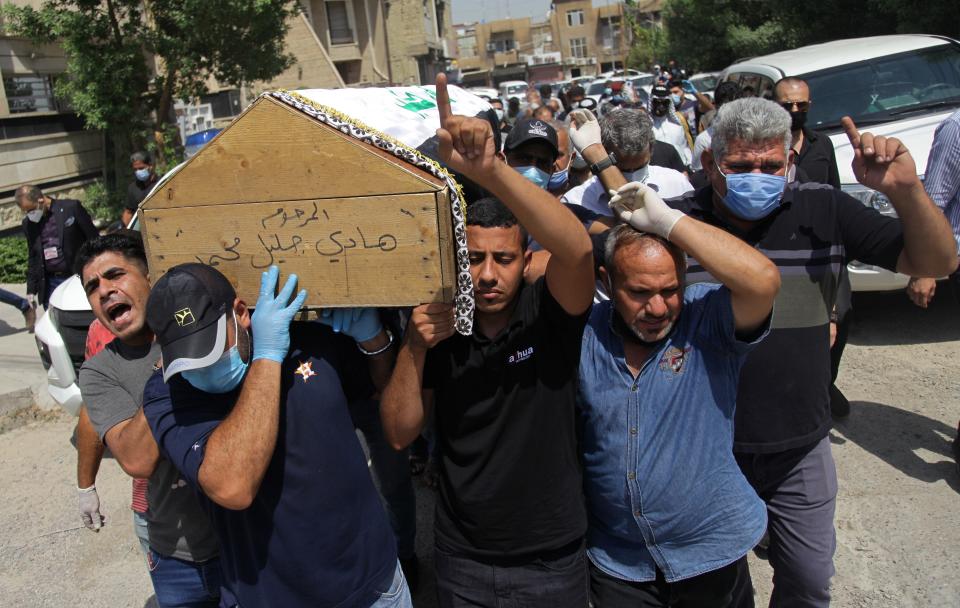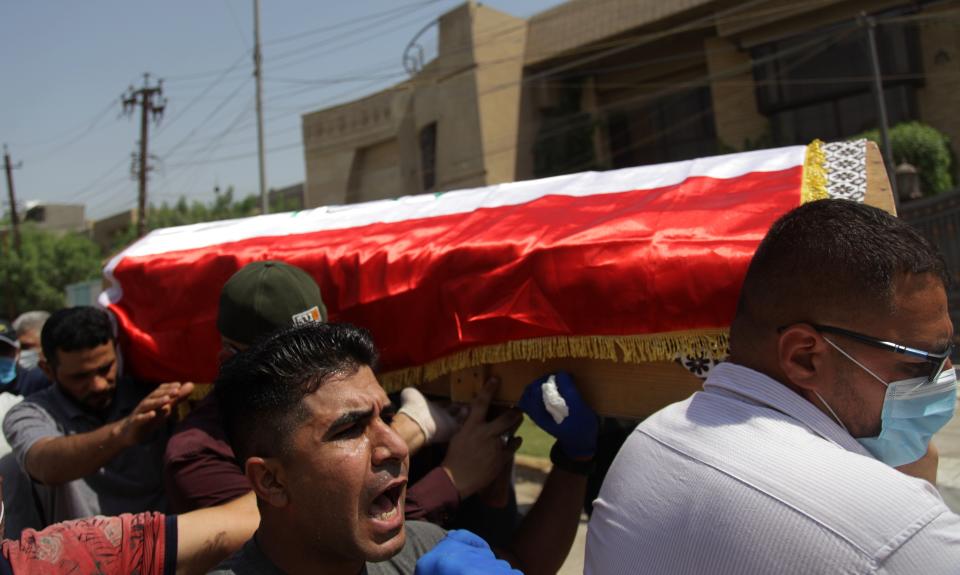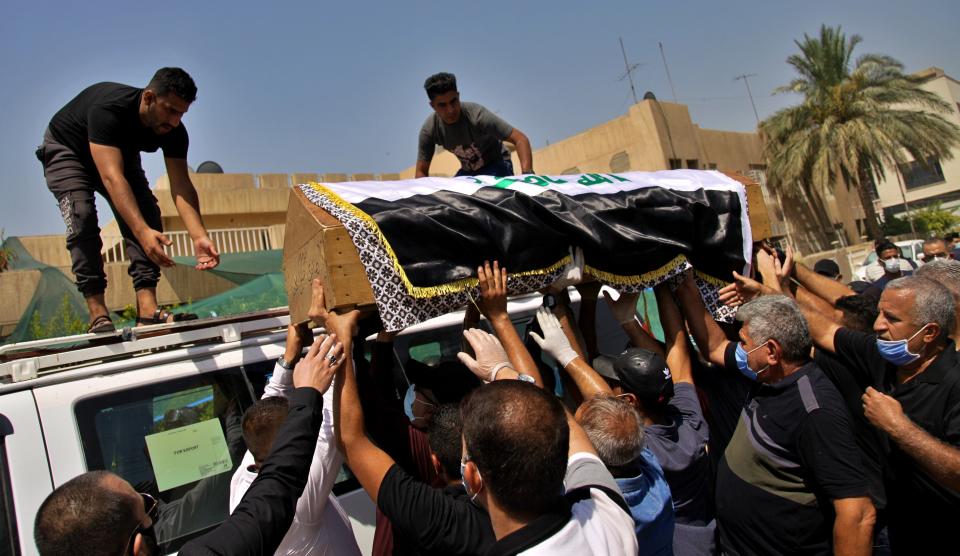Outspoken Iraqis fear rogue groups after analyst killed
BAGHDAD (AP) — The killing of a prominent security analyst who had received threats from Iran-backed militias has struck fear in the hearts of outspoken Iraqis concerned that they, too, could be targeted by armed groups.
The death of Hisham al-Hashimi also highlighted the limits of Prime Minister Mustafa al-Kadhimi's power to reign in armed groups acting outside the state's authority, experts and Iraqi officials said Tuesday.
Iraqi mourners and relatives of al-Hashimi carried his body in a funeral procession hours after he was gunned down Monday night outside his home in Baghdad's Zeyouneh neighborhood. His casket, draped in the Iraqi flag, was taken to his family home before being driven to the burial site in the holy city of Najaf.
Al-Hashimi, a leading expert on the Islamic State group and other militant organizations, was a regular fixture on Iraqi television and his expertise was often sought by government officials, journalists and researchers.
No one immediately claimed responsibility for the killing, which comes weeks after he confided to close friends that he had received threats from militia groups. The slaying also coincides with a spate of rocket attacks targeting U.S. interests that has been blamed on Iran-backed armed groups.
Al-Kadhimi vowed to pursue al-Hashimi's killers, saying “Iraq would not sleep” until they were brought to justice, during his weekly Cabinet meeting on Tuesday.
But critical voices in Iraq, especially those supporting anti-government protests and people outspoken against militia groups, are contemplating changing their online presence in the aftermath of al-Hashimi's death.
Mariam, 26, an activist who participated in anti-government protests in Baghdad’s Tahrir Square that erupted in October, said she has stopped posting on social media for the time being.
“What has shocked us is that they killed someone with Hisham’s connections and influence. Activists across Iraq have been killed with impunity for years, and especially during the protests,” Mariam said, asking that her last name not be used for fear of retribution. “With his death we are in disbelief, and we are being careful.”
Al-Hashimi's assassination was a message meant to silence critics, said Ruba Ali al-Hassani, an academic researcher at York University’s Osgoode Hall Law School in Toronto.
“Analysts are being targeted not because of who they are but because of what they represent and what their voices represent,” she said. Al-Hassani co-manages the Iraqi Network for Social Media, a network of bloggers that tracks social media at the height of the Iraq protests.
Al-Hassani said Iraqi activists in Baghdad and the country's south, where mass protests were held in October, are being more careful with their online presence.
“They are saying, we have to watch our words now, we can't say everything online,” she said.
Al-Hashimi had received threats from Islamic State group militants. But close friends said he had been growing concerned about threats coming from Iran-aligned groups after being a vocal proponent of the protest movement in October. At the time, top leaders of the Popular Mobilization Forces said they could not help him ward off the threats. The PMF is a state umbrella group comprised of an array of militia groups, including Iran-backed ones.
This prompted al-Hashimi to relocate to Turkey temporarily with his family late last year. He returned in January, and as threats abated, he resumed making frequent media appearances in which he openly critcized militia groups.
Then, the menacing messages returned right as a government-imposed lockdown to stem the spread of the coronavirus pandemic shut down international airports.
During that time, close friends said, al-Hashimi never considered his life was in danger. “He thought they just wanted to silence him,” said Iraqi analyst Sajad Jiyad, a close friend.
Authorities launched a raid last week in Baghdad, in which they detained 14 members of the powerful Kataib Hezbollah group, suspected of orchestrating the attacks targeting U.S. interests. All but one of the detainees were released days later in what was widely seen as a capitulation by the government.
Whether his government can bring al-Hashimi's killers to court will be a “big test for al-Kadhimi's credibility,” said Iraq analyst Fanar Haddad.
Hours after al-Hashimi’s killing, authorities fired the top police officer for Zeyouneh and launched an investigation into his activities, according to an order from the prime minister’s office, seen by The Associated Press.





